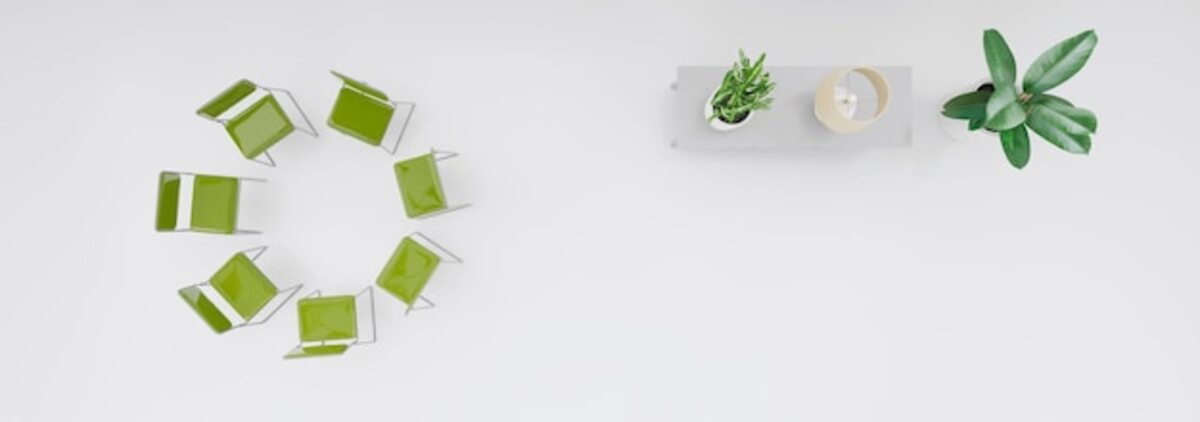Discover how the organization transforms your well-being at home.

Discover how organization transforms your well-being at home. Keeping a tidy home not only enhances the aesthetics of your spaces but also positively impacts your mental and emotional health. By implementing effective organization strategies, you can reduce stress, increase your productivity, and create an environment conducive to rest and creativity. Join me in exploring the benefits and techniques that will transform your home into a haven of well-being.
The connection between clutter and stress: how does it affect your emotional state?
The connection between clutter and stress is a widely documented phenomenon that affects many people in their daily lives. An unorganized home can serve as a constant reminder of unfinished tasks and pending responsibilities, generating a feeling of overwhelm that translates into anxiety and frustration. This chaotic environment not only interferes with our ability to concentrate and be productive but can also negatively impact our emotional state, leading us to experience feelings of helplessness and lack of control over our lives. The accumulation of objects and visual clutter can become overwhelming, making it difficult to relax and enjoy the home.
On the other hand, by adopting a more organized approach to managing domestic space, significant improvements in mental health can be observed. An orderly environment promotes mental clarity and fosters a calmer atmosphere, which helps reduce daily stress. By simplifying your physical surroundings through effective organizational techniques, such as regular decluttering and sorting belongings, you can free up mental energy that was previously trapped in chaos. This transformation not only contributes to greater emotional well-being but also opens the doors to a more balanced life where you can focus on what truly matters: enjoying your home as a safe and welcoming haven.
2. Psychological benefits of an organized space: beyond the visual.
An organized space goes beyond being simply visually appealing; it has a profound impact on our mental and emotional health. When a home is tidy, it reduces the sense of chaos that can generate anxiety and stress. The visual clarity that an orderly environment provides allows our minds to focus on more important and creative tasks, rather than getting distracted by clutter. This sense of control over our surroundings can contribute to greater emotional stability, as we feel more empowered to face daily challenges.
Additionally, the organization fosters a sense of achievement and personal satisfaction. Every time we spend time organizing a space, we experience a small victory that boosts our self-esteem and motivation. A well-organized home can also facilitate the creation of healthy routines, as it is easier to maintain positive habits when environments are free of clutter. In this sense, the psychological benefits derived from an organized space not only improve our immediate mood but also promote a proactive attitude toward our daily lives and overall well-being.
3. Simple strategies to get started: initial steps towards a more organized home.
Starting the journey towards a more organized home can seem overwhelming, but with simple strategies, you can achieve significant changes. The first step is to get rid of what you no longer need. Take some time to review each room and sort your belongings into three categories: keep, donate, and throw away. This process not only frees up physical space but also lightens your mental load by removing items that no longer serve a purpose in your life. Remember that less is more; by reducing the number of things, it will be easier for you to maintain order.
Once you have decluttered your belongings, establish an organization system that works for you and your lifestyle. Use boxes, organizers, or shelves to categorize items by their use or location in the home. For example, in the kitchen, group similar utensils or ingredients by type. Additionally, assign a specific place for each object; this will make it easier to find what you need without wasting time searching. Implementing a brief daily routine to maintain this order will help turn these habits into a part of your daily life, thus creating a more peaceful and welcoming environment where you can fully enjoy your home.
4. The importance of minimalism in home organization.
Minimalism in home organization is based on the premise that less is more. By adopting this approach, unnecessary objects are eliminated and the essential is prioritized, creating a clearer and more harmonious environment. This process not only facilitates cleaning and maintenance of the space but also helps free the mind from visual distractions. With each object we decide to keep, we face an opportunity to reflect on its value in our lives, which can lead to greater mental and emotional clarity. Thus, by simplifying our physical environment, we are also simplifying our emotional burden.
Additionally, minimalism promotes a more conscious and sustainable lifestyle. Instead of accumulating things on impulse, we learn to appreciate what we truly need and value. This not only results in a more organized home but also in more responsible consumption habits that can contribute to overall well-being. By reducing material clutter, we create space for new experiences and meaningful relationships, allowing our home to be an authentic reflection of who we are and what we want to achieve. Ultimately, integrating minimalism into home organization can be a powerful tool for enhancing our overall well-being.
5. How to create functional zones in each room: optimize your spaces.
Creating functional zones in each room is one of the most effective strategies to optimize the spaces in your home. This practice not only improves organization but also allows each area to fulfill its specific purpose, resulting in a more harmonious and efficient environment. For example, in the living room, you can set up a reading corner next to a cozy lamp and a small bookshelf, thus creating a space that invites relaxation and enjoyment of your favorite books. Likewise, in the kitchen, you can design areas dedicated to food preparation and storage, thereby facilitating the workflow while cooking.
Additionally, by clearly defining the functional areas, you can incorporate storage solutions tailored to each activity. Using open shelves in the office to organize important documents or decorative boxes to store toys in the play area can work wonders for the visual and practical order of the space. The key is to observe how you use each room and adjust its design according to your daily needs. By doing so, you will not only maximize the use of the available space but also foster an environment where you feel more comfortable and productive, thereby contributing to your overall well-being within the home.
6. The role of lighting and colors in organized spaces.
Lighting and colors play a fundamental role in creating an organized and welcoming atmosphere at home. Proper lighting not only enhances the beauty of your spaces but also influences your mood and productivity. Choosing warm light in relaxation areas can promote relaxation, while brighter, white light in workspaces stimulates concentration and creativity. Additionally, by strategically lighting organized areas, you can highlight decorative or functional elements, helping to maintain visual and emotional order in your home.
On the other hand, colors are powerful tools that impact our emotions and perceptions. Soft colors like pastels or neutral tones can make a space feel larger and more serene, promoting a sense of calm. In contrast, more vibrant colors can energize an environment and make it feel cozier. By selecting color palettes that complement your organizational strategy, you will not only enhance the overall aesthetic of your spaces but also create a harmonious environment that fosters your mental and emotional well-being. The combination of good lighting with a careful choice of colors can transform any room into an organized haven where you feel welcomed and revitalized.
7. Organize with purpose: identify what you really need in your daily life.
Organizing with purpose involves deep reflection on what you truly need in your daily life. Often, we accumulate objects and belongings that, although they may have sentimental value, do not provide real benefit to our day-to-day. Take the time to evaluate each space in your home and ask yourself: Is this item useful to me? Do I really use it? By identifying the essentials, you will not only free up physical space but also emotional space, creating a lighter and more harmonious environment that fosters your well-being.
The process of intentional organization also allows you to set priorities in your daily activities. By getting rid of the unnecessary, you will be able to focus on the things that truly matter: your passions, your relationships, and your personal time. This approach will help you create more effective and fulfilling routines, where each object and activity has a clear purpose. Thus, by focusing on what you really need, you transform your home into a sanctuary where you can flourish and feel whole.
8. Long-term maintenance: daily habits to keep things organized.
The long-term maintenance of an organized home requires the implementation of daily habits that easily integrate into your routine. Start by dedicating a few minutes each day to simple tasks, like making the bed when you get up, organizing your workspace, and cleaning surfaces. These small gestures not only help keep chaos at bay but also provide you with an immediate sense of achievement and control over your environment. By making these actions a part of your daily life, you will be building a more harmonious and welcoming atmosphere.
It is also essential to establish an organization system that works for you and your family. This can include creating specific zones for each activity or using labeled containers to facilitate access to the items you use frequently. The key is to be consistent and adapt as needed; remember that every home is unique. By fostering these positive habits, you will not only maintain order in your physical space but also contribute to improving your emotional and mental well-being, thus ensuring that your home remains a refuge where you can relax and recharge.
9. Useful tools and resources for effective organization.
To achieve effective organization at home, it is essential to have tools and resources that facilitate this process. From smart storage systems to planning applications, there are multiple options that can adapt to your specific needs. For example, labeled storage boxes can help keep similar items together and make them easier to find, while modular shelving allows for maximizing vertical space. Additionally, investing in organizers for closets and drawers can transform even the most chaotic spaces into functional and pleasant areas.
On the other hand, technology also plays a crucial role in home organization. Applications designed for task management or shopping lists will allow you to keep track of your daily responsibilities without feeling overwhelmed. These tools not only help prioritize tasks but also encourage a more efficient routine. By combining traditional methods with technological innovations, you can create a personalized system that fits your lifestyle and helps you achieve a state of well-being at home where everything has its place and every activity flows effortlessly.
10. Final reflections: transform your home, transform your life.
The transformation of a home is not limited solely to aesthetics or physical order. Every organized corner and every space freed from unnecessary objects contributes to creating an environment that fosters inner peace and emotional well-being. When you make the decision to organize your home, you initiate a process that goes beyond the walls; it is an invitation to reflect on your priorities, your habits, and your lifestyle. By letting go of excess and simplifying your surroundings, you allow positive energy to flow that can influence all aspects of your life.
In the end, the act of organization becomes a powerful tool for self-exploration and personal growth. A well-organized home not only provides you with a functional space but also acts as a mirror of your mental state. When you achieve control over your environment, you experience a renewed sense of well-being and mental clarity. Thus, transforming your home translates into transforming your life: it empowers you to make more conscious decisions, foster healthy relationships, and cultivate a balanced lifestyle in harmony with your personal values.



